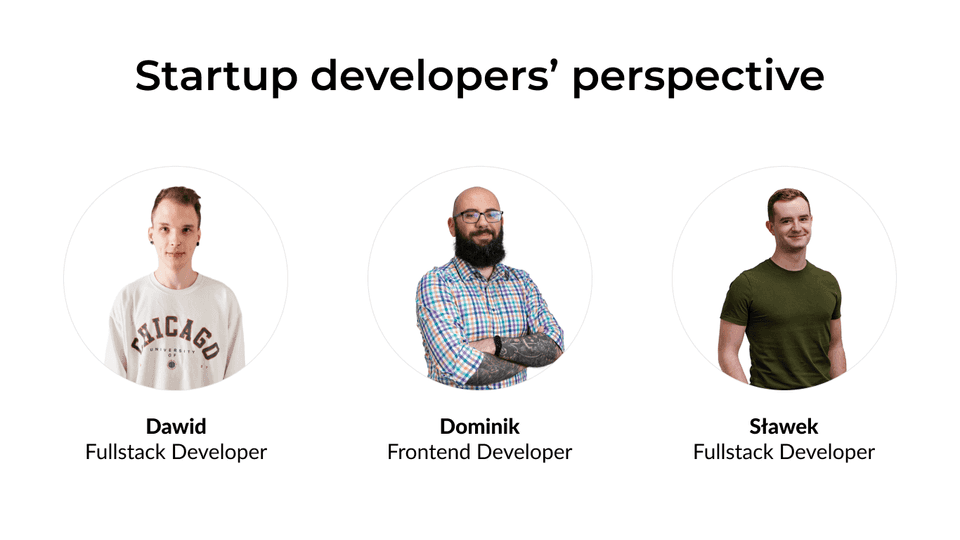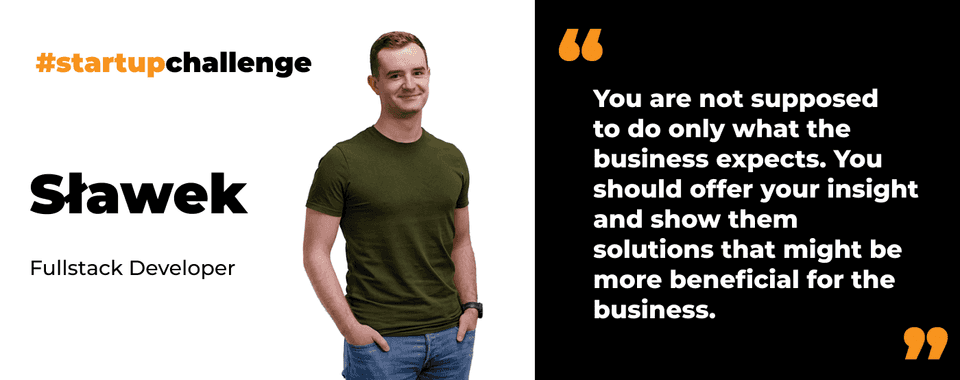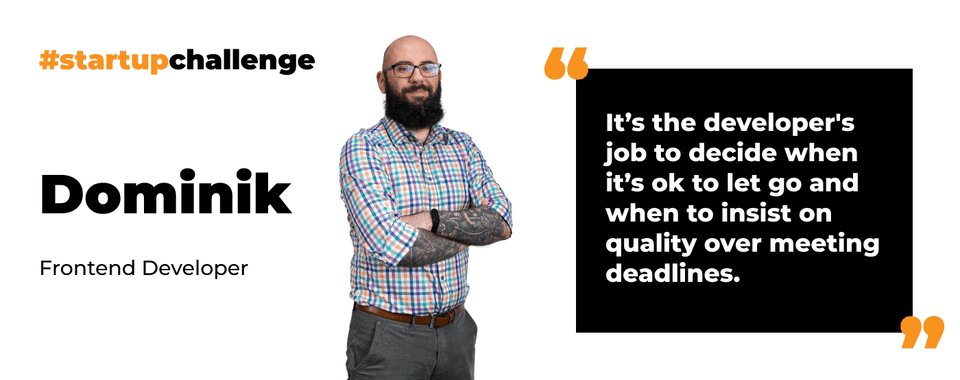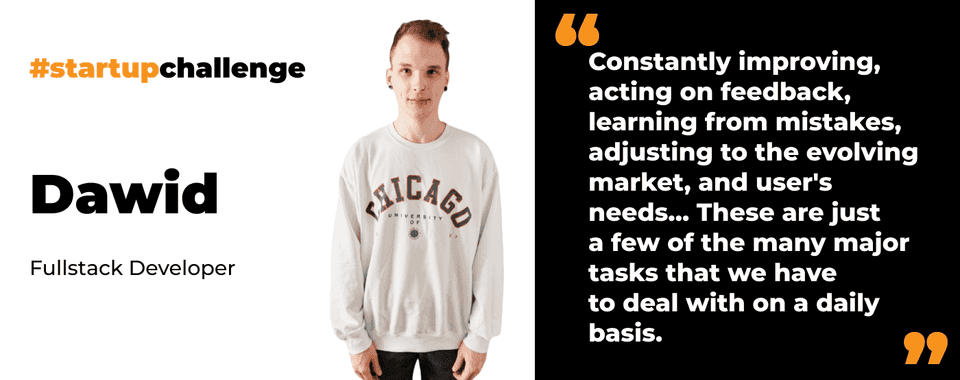Tech Challenges to Face When You Build a Startup Product
Are you a startup owner looking for a software agency? Check out what challenges you and your tech team will likely face during the development. Get a unique insight into the developer’s mind. 😉 And if you are a programmer thinking about working on a startup app, you will also find this article useful.
Dawid, Dominik, and Sławek are software developers working on startup projects. They decided to share challenges they have faced while working for startup clients at Bright Inventions.

Changes, changes, and changes
Sławek, Fullstack Developer at Bright Inventions:
“The Only Constant in Life Is Change.” – this quote by Heraclitus perfectly sums up working for a startup. Basically every day we should expect some kind of change. Starting from a slight shift in the requirements of the task we are working on to crossing out the feature which seemed a must-have a few days ago. On top of that, we experience pivots that might result in a total focus change to a completely different part of the app.
While working on a startup project you have to blaze a trail. There are no grand rules to follow. Especially when you build innovation. You have to find your way to discover suitable solutions. It requires lots of dedication, time, and money to test different approaches. Naturally, some roads will turn out to be dead ends.
Proactivity and constant look for the best solutions
Sławek:
While building a startup product you cannot hide behind your code. You are a part of the equation which determines the project’s success. As a developer, you have to be proactive. Proactivity in software development is based on analytical thinking and assertiveness. Why these two exactly? Analytical thinking helps you predict problems and look for better solutions. And sometimes they are opposite to what business wants. Here comes assertiveness.

You are not supposed to do only what the business expects. You should offer your insight and show them solutions that might be more beneficial for the business. You need to know how to communicate your proposal to show its value. Saying “no” is easy, explaining “why not” is the real challenge. If you are proactive like that, then the startup work will suit you.
Finding a balance between high-quality code and the rate of releasing new features
Dominik, Frontend Developer at Bright Inventions:
Working on new features at a startup often means two things:
- You have to work fast. So new functionalities can be released as soon as possible, increasing the “value” users will get from an app.
- Some of those features might be just a temporary solution or might not catch on.
That’s the risk of doing new, innovative things. As a developer, you have to find a balance between trying to write the best quality code you can and delivering the feature on time. If the code quality is poor and the feature “stays on” - then you either have to refactor everything or, even worse, build new stuff on top of it. On the other hand, you don’t want to overthink and overdo tasks that have a high probability of being removed from an app after a month or so.

When working for a startup there’s always pressure from product owners to do things quickly - “We will fix it to be done the right way next sprint”, they will say. It’s the developer's job to decide when it’s ok to let go and when to insist on quality over meeting deadlines.
Touching on many different technologies
Sławek:
Working on new features for startups is usually related to a very tight deadline. Therefore developers tend to go for ready solutions because there is no time to write their own or simply because they don’t want to reinvent the wheel.
We shouldn’t make a habit of that though. In the end, it forces the team to maintain lots of unnecessary or inadequate dependencies. Day by day they expand on our system and are becoming more and more difficult to get rid of. All of these external solutions increase the potential number of bugs. Also, they make it more difficult to conduct an efficient onboarding for new developers who need time to understand all dependencies.
On the other hand, it gives developers the opportunity to learn and discover new libraries, frameworks, tools, and more. I suppose that the only way to find the right balance is a clear guidebook with rules on adding new dependencies and choosing the right stack for the project.
Maintaining users’ trust
Dawid, Fullstack Developer at Bright Inventions:
Gaining and maintaining users' trust… This one isn't really a piece of cake. As we all know, trust is one of the most valuable assets we can gain from another human being. That's why we have to make sure that everything is top-notch. There is barely room for mistakes here.

Constantly improving, acting on feedback, learning from mistakes (let's be real here, everyone commits some), adjusting to the evolving market, and user's needs… These are just a few of the many major tasks that we have to deal with on a daily basis. Yet how can we actually gain that user’s trust?
Well, let's start off with the right tools. We need to constantly monitor our app to provide little to no downtime at all. Also, it would be great if our product could run on any device. So we can reach a wider audience, and thus build a stronger position in the market.
Taking care of creating bonds with the users, and making them feel safe, and secure will also work to our advantage. Then naturally a couple of positive reviews will show up which will help to continue building the product's credibility.
Here are some of the major tech challenges we have faced while working on startup products.


